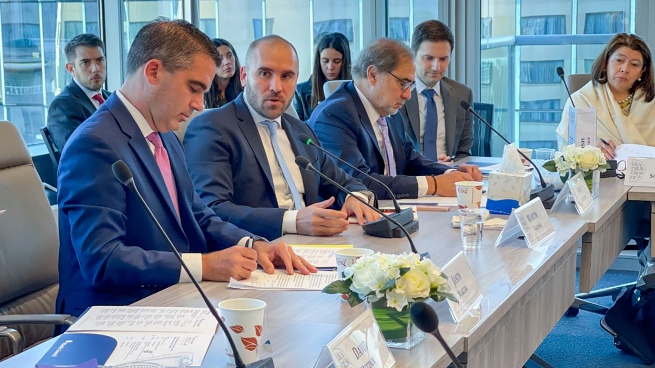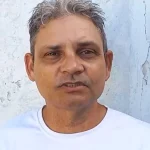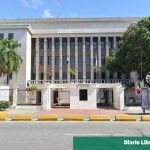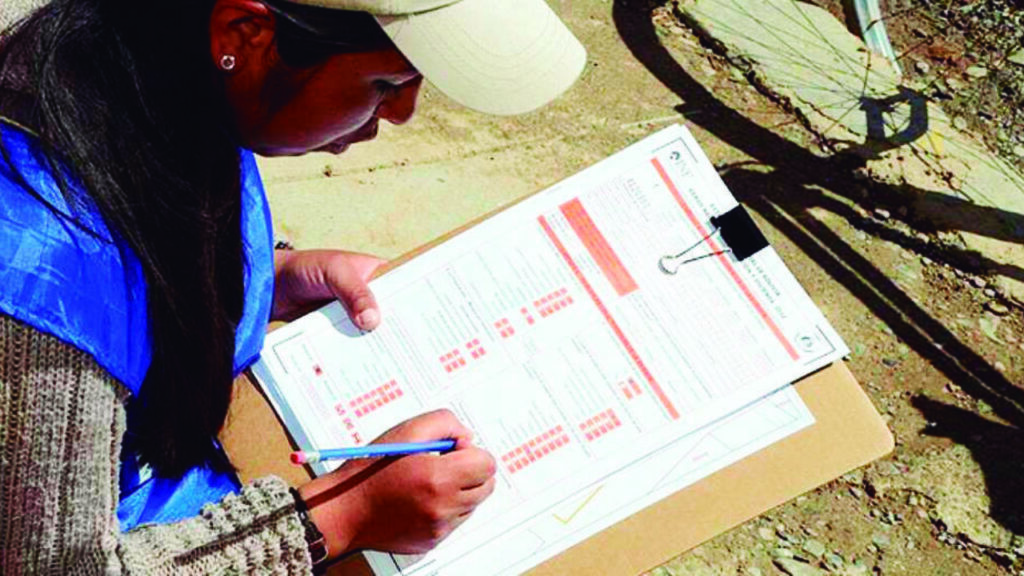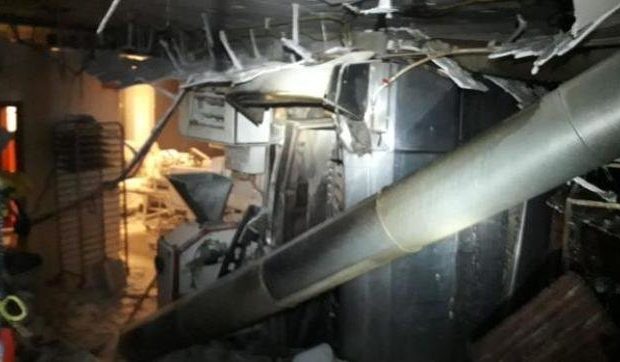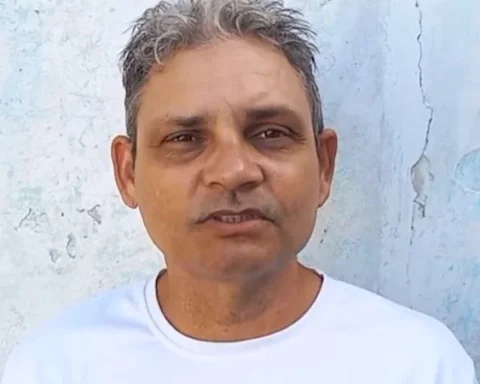The Minister of Economy, Martín Guzmán, assured that the impact of the war in Ukraine “is not being so negative to achieve the goals” with the International Monetary Fund, affirming that the program “comes in line with what was planned” and the economy “continues to grow at a steady pace and generate employment”.
This was stated by the head of the Palacio San Martín in an interview with the media at the Argentine Embassy in the United States, as part of his participation in the Spring Meeting of the Monetary Fund and the World Bank, in Washington.
The main sections of Guzmán’s talk with the Argentine press
Journalist: How was the meeting with the IMF?
Guzman: With Kristalina Georgieva we have a dialogue frequently, almost weekly. In this meeting, the work of the week was reviewed and the good progress that has been verified in the implementation of the agreement with the Fund. The meetings analyzed the international context and the implications of the war in Ukraine, which is generating an inflationary process at a global level. There are countries that did not have inflation and today have 2-digit indicators. There is an international consensus to avoid the distributional consequences of the crisis. Importance of governments to prevent the increase of inequality and promote a shared economic recovery.
There is good progress. We have seen that the fiscal path was in line with what was agreed, there is overcompliance with respect to the monetary issue reaching 0.15% of the product. We have obtained growth in the accumulation of international reserves. The economic program is in line with what was planned. The economy continues to grow steadily and generate employment. The challenge presented by the Ukraine crisis is the inflation of international prices.
The situation in the war has impacted in 3 dimensions. On the one hand, in the terms of trade, which has had somewhat positive effects on the dynamics of the balance of payments. Since there have been increases in the prices of commodities, minerals and oil, which are products that Argentina exports, more than offsets the impact that occurs in the price of liquefied natural gas. This is also strengthened thanks to a good agreement we had with Bolivia and the agreement with Brazil in the energy sector. The impact of the war in fiscal terms is less negative.
Q: You have mentioned on several occasions that inflation is a multi-causal phenomenon, what are the tools to attack price increases that are being implemented?
G: To attack inflation, we need a consistent macroeconomic policy. A fiscal, monetary and exchange program and that is what we have outlined. It is essential that Argentina experienced a growth in foreign exchange to strengthen exchange stability so that international reserves grow. This is complemented by price and income policies, the effectiveness of which depends on the implementation of the program and its effects on expectations.

Q: Has the fund been discussed with the windfall income tax?
G: Regarding the unexpected income project, we have discussed it with the IMF and together with many other countries that are seeking to contain the distributive effects of the war. For example, Italy announced an unexpected rent scheme due to the impact on the energy sector. We seek that the international context does not generate an inequitable effect on the country.
What it aims to do is capture part of the unexpected income and encourage investment. If the unexpected income is reinvested, the companies’ contribution will be lower. We are talking about a single tax for companies with profits of more than 1,000 million pesos, income in real numbers and that have a high profit margin. It is less than 1% of Argentine companies that have had revenues greater than one billion. It is a single tax, for the year 2022.
Q: What readjustments will be made in the agreement with the IMF?
G: The economic program helps Argentina to continue growth and attack inflation. The goals will not change. What there is is that social protection policy is being reprioritized given the impact of the war on food prices.
Q: What sectors are identified to support investments and generate a growth process?
G: Growth is taking place in all sectors of the Argentine economy, fundamentally in sectors with the capacity to generate foreign exchange, agribusiness, mining, the knowledge economy.
We are focused on generating energy self-sufficiency that allows the increase of the production scale. We are developing infrastructure, the main project is the Néstor Kirchner gas pipeline to connect the south with the north of the country and be able to export gas.
Gas pipelines are also being developed. The main project we are analyzing is liquefied natural gas, which requires long terms and conditions of certainty. This has been the main topic in the meetings, particularly with Europe. Given the situation generated by the armed conflict, they are diversifying their sources of energy supply and in this context, Argentina can play an important role in producing liquefied natural gas. We are working with YPF and other companies in the sector. There is great enthusiasm and we know that we are going to need international capital and know-how. We need to guarantee international demand and for that we are working to establish the regulatory framework. For what we are going to need to build consensus in the National Congress so that it becomes a State policy.

Q: Is it possible to think about the production of liquefied natural gas when there are still stocks and exchange rate instability?
G: Many of the investors were waiting for the closing of the agreement with the Fund. We are working so that there is investment on a scale, greater investment by international capital. These are investments in the real economy. It is necessary to adapt the regulations of the capital account and we are working on a regulatory framework that guarantees that capital enters and that it can move internationally.
Q: Some ministers stood up during the remarks of the representative of Russia at the G20 meeting, is Ukraine’s situation in the G20 causing a tug of war?
G: Russia was almost expelled from the G20, which is a very important forum for the world. More dialogue needs to be generated, not less dialogue. What is happening is very damaging from a humanitarian point of view with the Russian invasion of Ukraine. What we need is a negotiated solution to the war.
